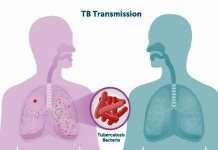Kidney stones are small, hard deposits that form in the kidneys when there is a decrease in urine or an increase in certain substances, such as minerals and salts.
It has been observed that condition can occur in persons of any age, but is commoner in individuals aged 25-50, and within this age bracket, the risk increases with advancing age.
Twenty to fifty percent of these deaths due to kidney failure in developed countries have been associated with kidney stones, and individual as well as environmental factors considered to be responsible for the morbidity and mortality statistics associated with stone related cases of end stage renal failure.
Going forward, kidney stone diet has been designed to help prevent kidney stones from forming or recurring, in people with higher risk of the disease. According to a MedicalNewsToday report, the list of the foods that form the kidney stone diet can be found below.
Foods that may prevent kidney stones
Because kidney stones vary according to what they are made of, the foods to include in a diet will vary. A discussion with your healthcare giver will help better. The foods include:
Calcium and oxalate-rich foods
Milk based products.
Samples of foods to include are:
milk-based products
calcium fortified foods, such as cereal, bread, and juices
beets on a spinach salad with low-fat cheese
yogurt with berries
Fruits and vegetables
Fruits and vegetables are a necessary part of any diet. Increasing the amount of vegetables in their diet can help a person prevent stone formation. Fruits can be dried, frozen, or fresh. Fruits rich in citric acid have also been shown to have a positive effect in preventing kidneys stones. Get to know the particular fruits and veggies that have high oxalate content and try to limit them, or be sure to eat them in combination with calcium-rich foods.
Water
Including extra water in the diet can help prevent the formation of both uric acid and cystine stones. Including other liquids in addition to water is acceptable; however, it is important to check sodium levels in the beverage.
Plant-based protein
Small amounts of animal-based proteins are fine. However, too much animal protein can increase the risk of developing kidney stones. Plant-based protein sources, however, are encouraged. Examples include beans, peas, and lentils. People should discuss their individual protein needs with a doctor or a dietitian, as needs will vary from person to person.
Foods to limit with kidney stones
However, to be on a safe side, experts have advised that it is better to limit such foods as containing:
Sodium, animal proteins, including eggs, fish, pork, beef, and milk products.










